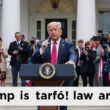Alice Weidel’s early life was marked by discipline and a strong work ethic, instilled in her by her parents. Her father, a refugee from Silesia, was critical of the post-war reconstruction of Germany and Weidel grew up with a negative view of the country’s history.
Weidel’s family was financially secure, with her father working as a sales representative and her mother not being employed. Her parents valued education and Weidel’s siblings went on to study at top institutions, including the ETH Zurich and the University of St. Gallen. Weidel herself initially wanted to study medicine, but her father dissuaded her and she ended up studying business and economics in Bayreuth.
After completing her studies, Weidel worked for various financial institutions, including Credit Suisse, Allianz Global Investors and Goldman Sachs. She also spent time in Japan and China and later established her own consulting firm. Her personal life is marked by her long-term partnership with a woman from Sri Lanka, who was adopted by a Swiss pastor’s family.
Weidel’s entry into politics was sparked by a disagreement with her partner, who encouraged her to engage more actively in public debates. She joined the Alternative for Germany (AfD) in 2013 and quickly became known for her economic expertise, using her knowledge to argue in favor of the party’s platform.
As the AfD radicalized, Weidel’s profile rose and she faced criticism for her association with the party. Her conversation with Elon Musk on his platform X, in which he recommended the AfD as the only viable alternative for Germany, sparked a wave of outrage. The exchange, which some claimed had a revisionist tone, led to a broader debate about the role of international entrepreneurs in German politics.
While some in the AfD saw the controversy as a success, Weidel remained strategically quiet, having previously sent the party’s program to Musk in English a year prior. The fallout ultimately confirmed her strategy, as the AfD once again became the center of political attention.





